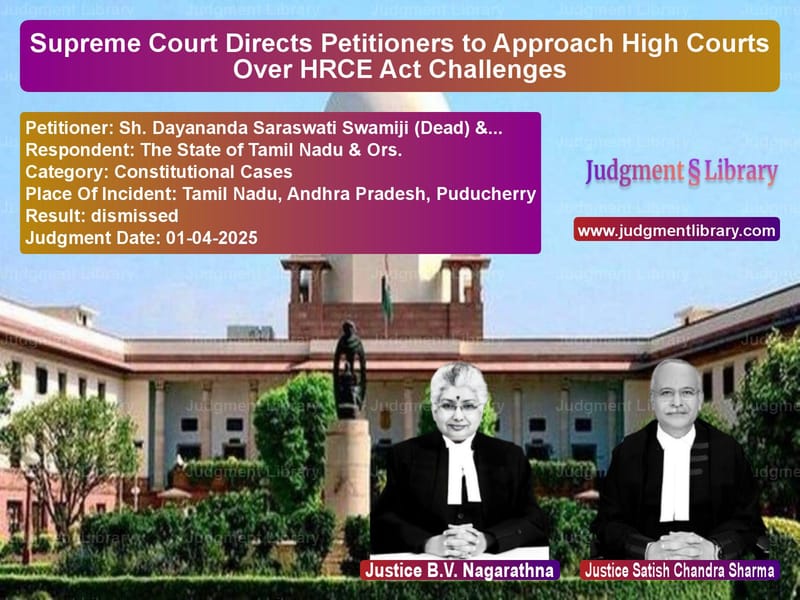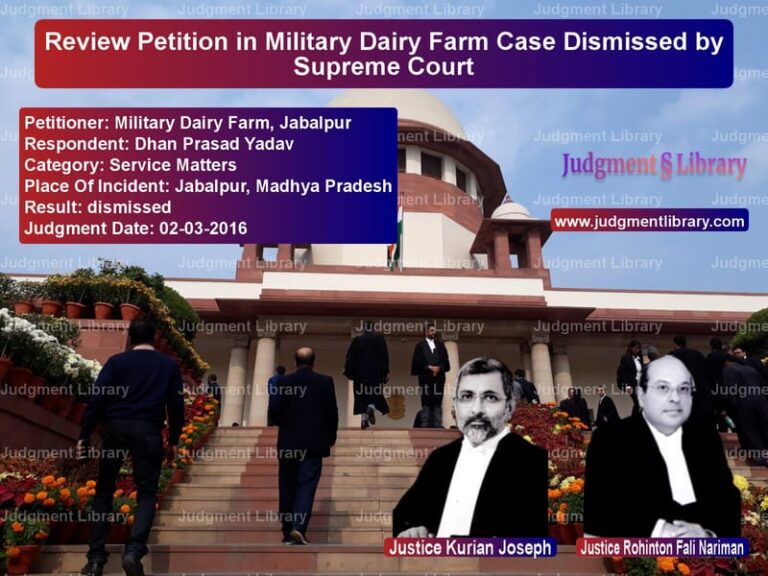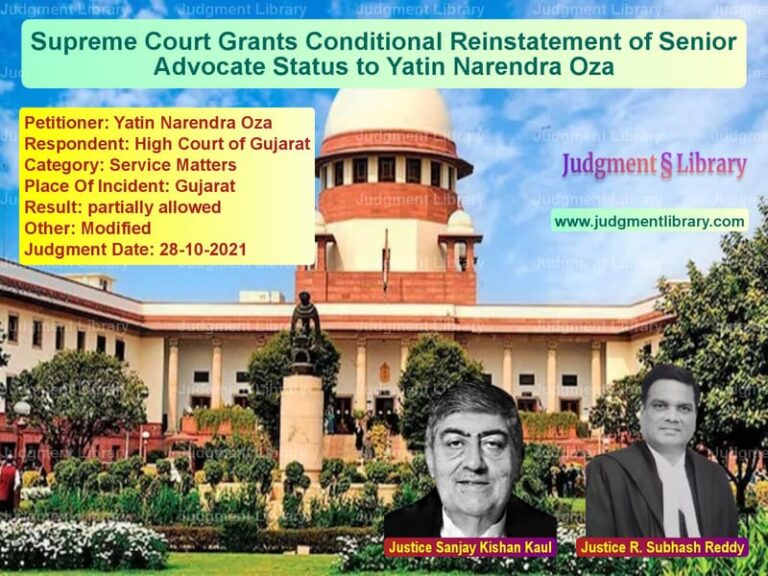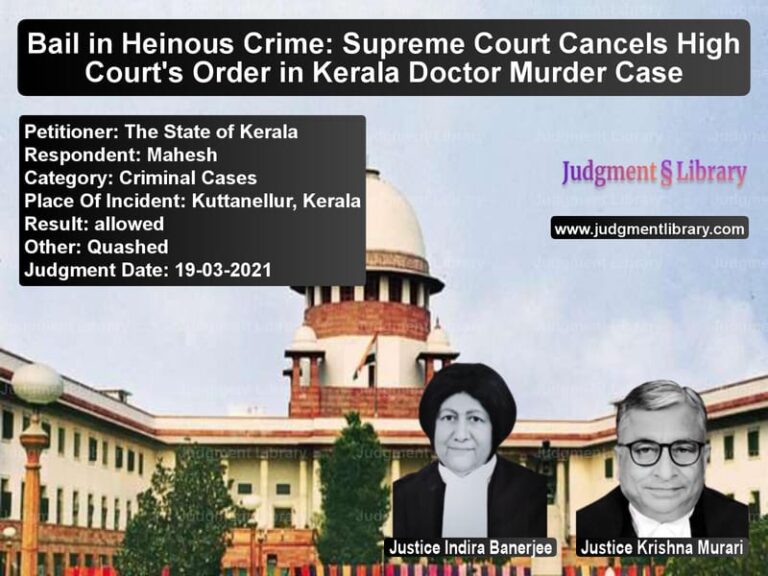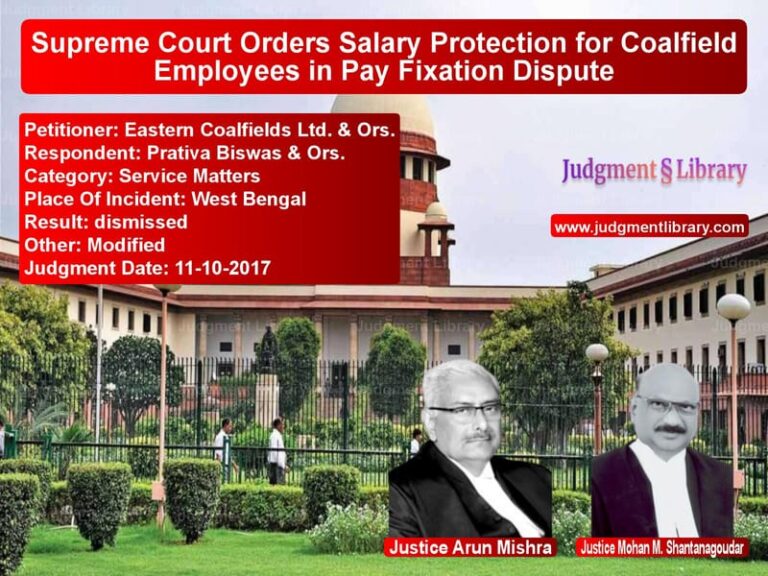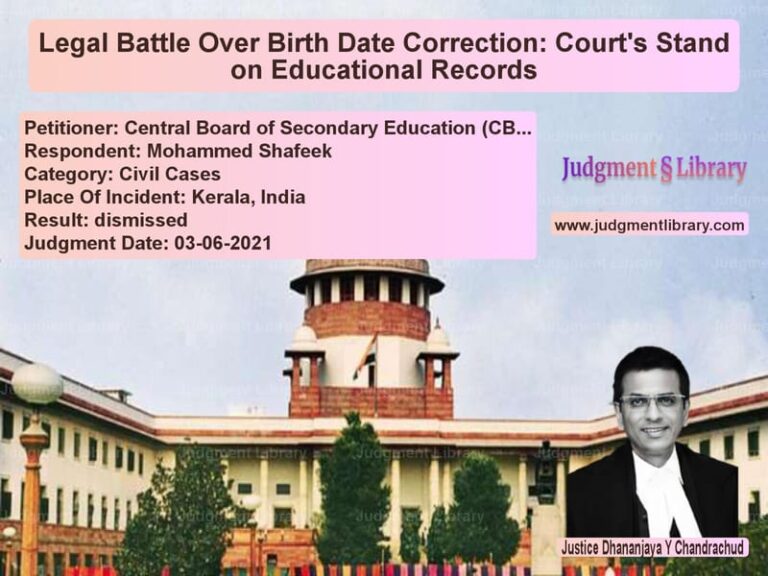Supreme Court Directs Petitioners to Approach High Courts Over HRCE Act Challenges
The Supreme Court of India recently addressed a series of writ petitions challenging various provisions of the Hindu Religious and Charitable Endowments (HRCE) Acts of Tamil Nadu, Andhra Pradesh, and Puducherry. The petitions, filed under Article 32 of the Constitution, sought to declare several sections of these Acts as unconstitutional, alleging violations of fundamental rights under Articles 14, 19(1)(g), 25, 26, and 31(1)(a)(b). The judgment, delivered on April 01, 2025, by a bench comprising Justices B.V. Nagarathna and Satish Chandra Sharma, directed the petitioners to approach the respective High Courts for redressal.
Background of the Case
The petitioners, including Sh. Dayananda Saraswati Swamiji (Dead) & Ors., challenged multiple provisions of the HRCE Acts of Tamil Nadu (1959), Andhra Pradesh (1987), and Puducherry (1972). The petitioners argued that these provisions infringed upon their fundamental rights, particularly those related to religious freedom and management of religious institutions. The case also involved interventions from the Union of India and the respective state governments.
Petitioners’ Arguments
The petitioners, represented by Dr. Subramanian Swamy (appearing in person), contended that:
- The provisions of the HRCE Acts violated their rights under Articles 14 (equality before law), 19(1)(g) (freedom to practice any profession), 25 (freedom of religion), and 26 (freedom to manage religious affairs).
- Sections such as 3(1), 3(4), 23, 24, 26, 32, 35, 36, 36-A, 36-B, 43-A, 45, 47, 49, 49-B, 50, 54(1), 63, 71-76, 92, 97, 108, and 111 of the Tamil Nadu Act were ultra vires the Constitution.
- Similar challenges were raised against sections of the Andhra Pradesh and Puducherry Acts, alleging excessive state interference in religious institutions.
- They sought interim reliefs to restrain the respondents from implementing the impugned provisions.
Respondents’ Arguments
The respondents, including the State of Tamil Nadu & Ors., represented by learned senior counsel and the Additional Solicitor General, argued that:
- The HRCE Acts were enacted to ensure proper administration and management of religious institutions, preventing mismanagement and misappropriation of funds.
- The provisions under challenge were necessary for transparency, accountability, and the welfare of the institutions and their devotees.
- The petitioners’ claims of constitutional violations were unfounded, as the Acts operated within the framework of permissible state regulation of religious institutions.
Supreme Court’s Observations and Decision
The Supreme Court made the following key observations:
- The petitions involved challenges to multiple provisions across three different state Acts, each with distinct schemes and historical contexts.
- The Court noted that the High Courts, being closer to the ground realities and having jurisdiction over state laws, were better suited to adjudicate such matters.
- The Court emphasized the need for a nuanced understanding of the socio-economic, cultural, and religious dimensions of the issues, which could be better addressed by the respective High Courts.
Verbatim Excerpts from the Judgment
“Having regard to the challenge made to various provisions of the Hindu Religious and Charitable Endowments Act of the respective States, we find that the petitioners could be permitted to approach the respective State High Courts to assail the said provisions since the scheme of the respective Scheme Acts may be distinct.”
“We find that a more effective manner of ventilating the grievances by the petitioners herein is to assail the provisions of the respective Acts before the respective jurisdictional High Courts so as to enable the High Courts to better appreciate the dimensions of challenge of the provisions of the respective Acts.”
Directions Given by the Supreme Court
The Court disposed of the writ petitions with the following directions:
- The petitioners were granted liberty to file fresh writ petitions before the respective High Courts (Tamil Nadu, Andhra Pradesh, and Puducherry) to challenge the impugned provisions.
- The High Courts were encouraged to consider the petitions in light of the socio-economic, cultural, and religious aspects, including historical and judicial precedents.
- The High Courts were also given the discretion to constitute Expert Committees to assist in evaluating the challenges.
Conclusion
The Supreme Court’s decision underscores the importance of decentralized adjudication for matters involving state-specific laws and local contexts. By directing the petitioners to approach the High Courts, the Court ensured that the challenges would be examined with a deeper understanding of the regional and historical nuances. The judgment reaffirms the principle that constitutional challenges to state laws are best addressed by the High Courts, which are better equipped to handle the complexities of such cases.
Petitioner Name: Sh. Dayananda Saraswati Swamiji (Dead) & Ors..Respondent Name: The State of Tamil Nadu & Ors..Judgment By: Justice B.V. Nagarathna, Justice Satish Chandra Sharma.Place Of Incident: Tamil Nadu, Andhra Pradesh, Puducherry.Judgment Date: 01-04-2025.Result: dismissed.
Don’t miss out on the full details! Download the complete judgment in PDF format below and gain valuable insights instantly!
Download Judgment: sh.-dayananda-sarasw-vs-the-state-of-tamil-n-supreme-court-of-india-judgment-dated-01-04-2025.pdf
Directly Download Judgment: Directly download this Judgment
See all petitions in Fundamental Rights
See all petitions in Constitution Interpretation
See all petitions in Public Interest Litigation
See all petitions in Judgment by B.V. Nagarathna
See all petitions in Judgment by Satish Chandra Sharma
See all petitions in dismissed
See all petitions in supreme court of India judgments April 2025
See all petitions in 2025 judgments
See all posts in Constitutional Cases Category
See all allowed petitions in Constitutional Cases Category
See all Dismissed petitions in Constitutional Cases Category
See all partially allowed petitions in Constitutional Cases Category

